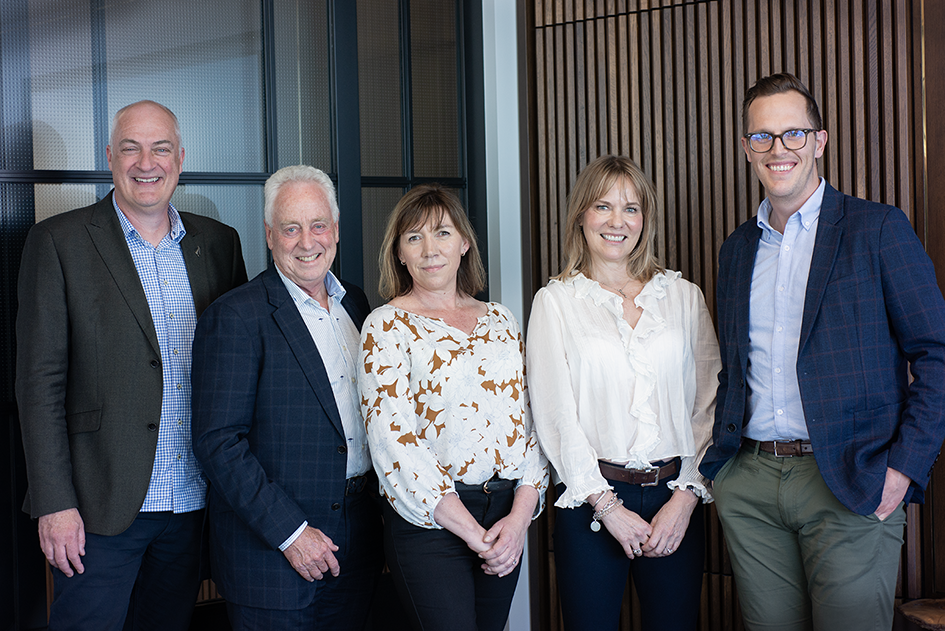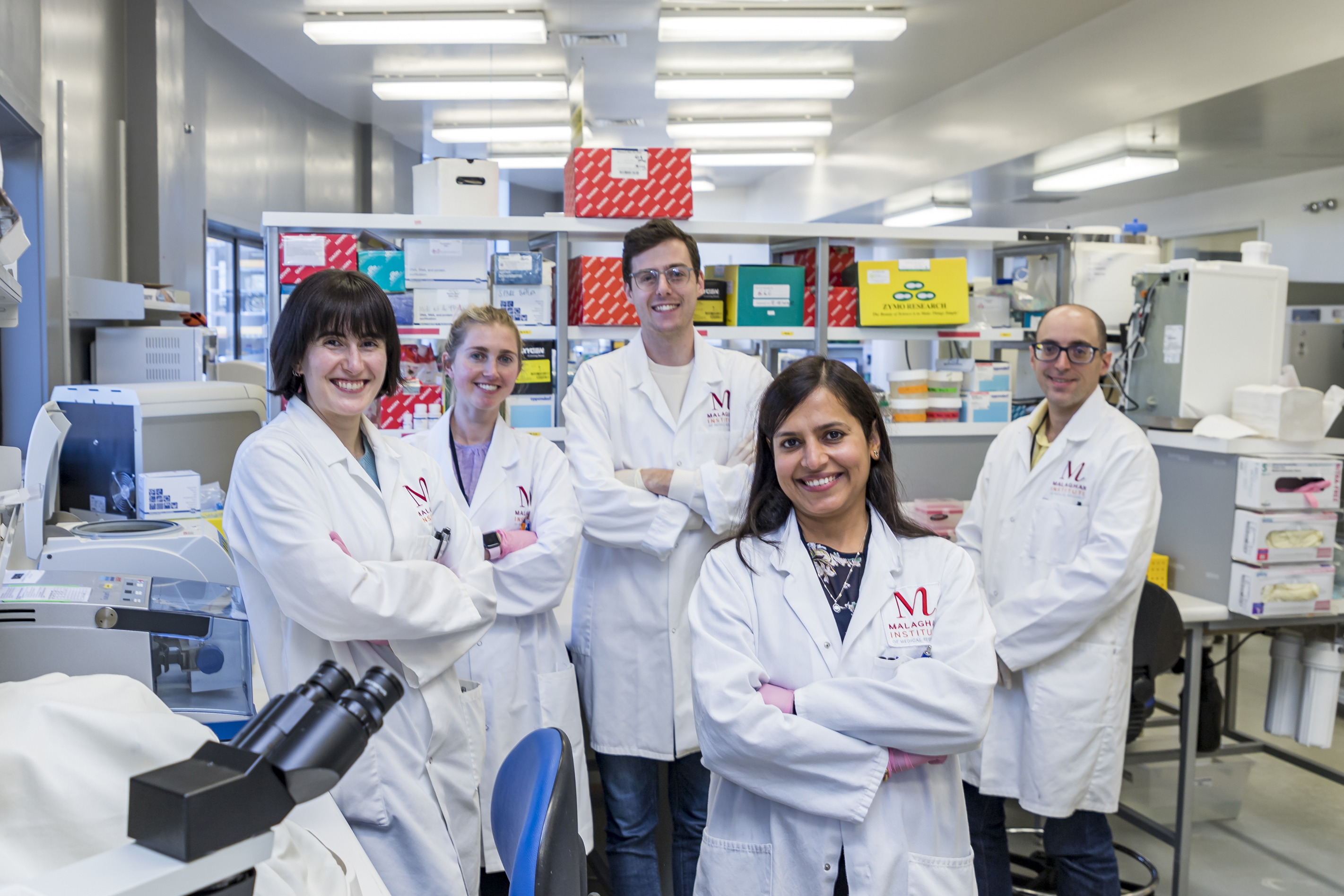Philanthropy and cancer research

From time to time, Alvarium Wealth hosts exclusive client events which bring together sector experts, academics, industry leaders, and investors. For our latest event, we were delighted to welcome keynote speakers Professor Kjesten Wiig, and cancer survivor David Downs, the CEO of The New Zealand Story. They joined us in our boardroom for a fascinating discussion about cancer research and treatments, and the invaluable role that philanthropists can play.
In the following article, we take a closer look at a topic that resonates with so many people, and we explore the groundbreaking work of the Malaghan Institute of Medical Research.
While it is estimated that 30% to 50% of cancers in New Zealand are preventable, the sad truth is that one in three Kiwis will experience a cancer diagnosis in their life time[1].
For some patients, genetics play a role. For others, key contributors can be environmental factors, such as a sedentary lifestyles or poor diets. While in some cases, there is no rhythm or reason for a patient’s misfortune.
Unfortunately, the number of cancer patients is moving in the wrong direction. Five years ago, there were more than 27,000 new cancer cases in New Zealand. By 2040, that number is expected to soar to 52,000 [2].
While those numbers make for grim reading, all is not lost. The tireless and increasingly innovative efforts of medical researchers working hard to blunt cancer’s threat, are an important source of hope.
The legacy-based research aiming to save lives
The Malaghan Institute of Medical Research lies at the forefront of New Zealand’s efforts to create better, gentler treatments for cancer and other diseases through harnessing the power of the immune system.
Based in Wellington, and founded in the 1960s, the Institute was seeded from a transformative financial injection thanks to the philanthropy of Len and Ann Malaghan.
Len was one of the brains behind Kiwi favourite ‘Tip Top Ice Cream’ and later achieved great commercial success through the General Foods Corporation. Unfortunately, he was diagnosed with cancer and passed away in 1967. But his experience led to the family gifting shares in their company to the Wellington Cancer Medical Research Institute Trust – which later became the Malaghan Institute – in order to fund cancer research.
Fast-forward to today, and the influence of philanthropists is as important as ever. A registered charity, the Institute’s 2023/24 annual report stated that 58% of their revenue came from donations, followed by grants (32%), investments (9%), and other sources (1%).
That 58% of philanthropic revenue equated to $17.7 million (NZD), and its annual appeal raised $433,203 from just under 1000 individual donations [3].
To quote the report: “Without these (philanthropic) income streams we essentially operate at a break-even level [4].”

On the front line of medical experience
For Professor Kjesten Wiig, the new Director and Chief Executive of the Malaghan Institute, both professional and personal experience drive her commitment to developing better, safer treatments for all through cutting-edge research.
With a background in advancing science and innovation across academia, industry and government, she is well placed to lead the Malaghan on this mission.
“It starts with fundamental research, the curiosity-driven science that is essential for understanding disease and how to prevent it,” she says.
“I am adamant that at the Malaghan, ground-breaking discoveries won’t gather dust in a forgotten storage cupboard, lost to lack of vision. I want to drive every promising breakthrough forward with purpose, pushing the boundaries of science to turn potential into real treatments that improve the lives of Kiwis.”
In addition to the Institute’s cancer work, its research programmes are focused on infectious disease and allergic and inflammatory diseases, all through the lens of the immune system and its relationship to human health.
Professor Wiig says the Malaghan is unique in New Zealand as an independent medical research organisation backed by the community.
“Our diverse funding sources and independent status give us freedom, flexibility and spirit to make a difference, while partnerships with international collaborators, research organisations, government and industry ensure the impact of our science reaches far beyond the lab.”
A quick visit to the Institute’s website reveals how far a relatively small donation can go. As an example, $50 can cover the day-to-day costs of essential lab equipment. Meanwhile, $500 can help support a PhD student and help New Zealand nurture the intellectual talent needed to combat complex diseases[5].
As Professor Wiig explains, “The biggest barrier to better treatments isn’t science, it’s funding. With philanthropic support, we can move faster, go further, and bring the promise of immunotherapy to more New Zealanders, sooner. Our donors quite literally have the power to save lives – it’s what drives us, and hopefully what drives them to keep supporting this important work.”
Sharing a lived experience
In the opinion of David Downs, medical research and innovation are worth every dollar of funding.
Today, he’s the CEO of The New Zealand Story, using his extensive leadership experience from past roles at Microsoft and New Zealand Trade and Enterprise, to help market NZ to the world. At one time, his talents also stretched to the worlds of comedy and radio.
But for all his personal success, David is the proof that cancer doesn’t discriminate. On the flip side, he’s also the proof that cancer can be defeated.
In his own words, “In 2017, I’d built a successful career, but I was given the shattering news that I had less than a year to live after12 rounds of chemotherapy. Thankfully, I got the chance to get on a clinical trial for CAR T-cell therapy in the United States, via a personal connection to an exec at Pfizer in New York. The doctors in America unleashed some incredible genetic modifications that literally saved my life. I went from being at death’s door to being given a second chance at life. I feel incredibly passionate about helping other patients get the type of support that I got. It shouldn’t be the preserve of the rich, or accessible on a who-you-know basis.”
For context, the Malaghan Institute is currently running NewZealand’s first CAR T-cell trials, with the goal of making advanced innovativecancer treatments like this accessible to more Kiwis.
David’s experience has given him a new lease of life, and today he looks at things with a fresh perspective: “It sounds a bit cliché but being close to death makes you realise just how precious life is. In my case, it also energised me to want to help others who find themselves in bad way. If brilliant people like those at the Malaghan Institute can get the funding that they need to turn the tide on cancer, then the world will be a better place.”
The power of philanthropy
When it comes to financial planning and advice, our clients are often keen to explore the theme of legacy.
Having made and accrued wealth, many people embrace the opportunity to make a positive difference in their communities, as well as further afield. For first-time donors, the challenge can often beknowing where to start, and how to go about offering support.
Kevin McLean, a Director at Alvarium Wealth, sheds more light: “In my experience of working with clients, being a donor means different things to different people. A common misconception is that you need to donate huge lump sums to make a difference. While no charity is going to turn down the offer of a massive single donation, it’s important to recognise that it isn’t the only option. Giving smaller but regular amounts can be helpful too. As can the gift of time - lots of our clients have incredible life and professional experience, making them great candidates for mentorships or Trustee positions. Ultimately, it’s about identifying the causes closest to your heart, and the format of donation that works best for all parties. There are also tax considerations that need careful attention. Having the right Advisers by your side can take a weight off your shoulders, leaving you free to think about how you can help the causes you care about.”
Alvarium’s Advisers are well versed in understanding the financial and other goals of our clients, and we regularly utilise our extensive networks and rich experience to connect clients with likeminded peers, causes, and specialist advisers.
As Kevin concludes: “We often help clients to join the financial dots between their motivations, the causes they care about, and their broader estate. Philanthropy, especially when large sums of money are at stake, can feel daunting at first. But when done well, it can be incredibly rewarding. And as we heard at the event from Professor Wigg, it is often an essential source of funding for vital work. For many clients who go on to become donors, their only regret is that they didn’t start earlier.”
Please note: Alvarium does not provide tax or legal advice.
[1] Source: https://www.cancer.org.nz/about-us/cancer-society-media-releases/daffodil-day-has-a-sense-of-urgency-this-year-says-cancer-society-ce/
[2] Source: https://www.cancer.org.nz/about-us/latest-news/cancer-rates-expected-to-double-by-2040/
[3] Source: https://www.malaghan.org.nz/assets/Reports/MIMR_Annual-Report_2024.pdf
[4] Source: https://www.malaghan.org.nz/assets/Reports/MIMR_Annual-Report_2024.pdf
[5] Source: https://donate.malaghan.org.nz/forourlovedones
Photo credit: Malaghan Institute


